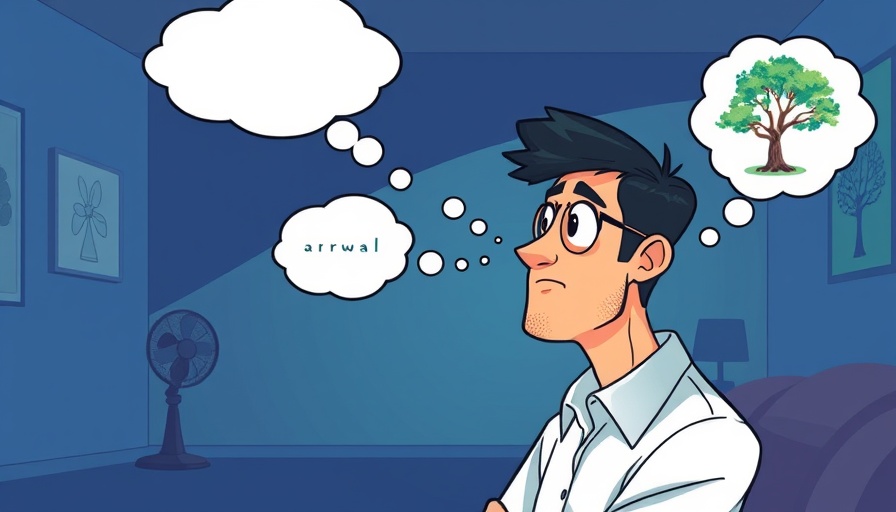
Understanding the Importance of Sleepiness
In a world that often values productivity over well-being, the American Academy of Sleep Medicine (AASM) has brought critical attention to an often overlooked health issue: sleepiness. Their recent position statement underscores the significance of sleepiness as a patient-reported outcome, where excessive daytime sleepiness poses risks not only to individual health but also to broader societal safety and productivity.
Health Risks Linked to Daytime Sleepiness
A substantial percentage of the U.S. adult population—approximately one-third—reports experiencing excessive daytime sleepiness. As highlighted by Dr. Eric Olson, president of the AASM, this condition leads to heightened risks of cognitive impairment, workplace accidents, and drowsy driving incidents. These risks escalate not only for the individuals affected but also for family members and the community at large. Health implications can include mental health concerns, such as depression and suicidal ideation, which further complicate the picture.
The Health System's Duty to Address Sleepiness
The AASM is calling for a reevaluation within health care systems to prioritize the assessment and management of sleepiness. This includes a robust push for research and innovative therapies aimed at addressing sleep-wake disorders. By equipping health care professionals with the knowledge and tools necessary to treat sleepiness, we can improve the overall quality of life and restore vitality among patients.
Community Health and Public Safety Implications
The impact of sleepiness extends into public safety realms, with drowsy driving data indicating that it contributes to a significant number of accidents each year. The public consciousness regarding this issue could spur community action, focusing on advocacy and educational measures to promote awareness about the critical need for restorative sleep.
Future Directions in Sleep Research and Treatment
Looking ahead, there's an imminent need for clinical innovation directed at sleep-wake disorders. Future research could pave the way for new treatment methodologies. Highlighting successful interventions from various health organizations can serve as a roadmap for developing public health strategies aimed at combating sleepiness.
The Role of Health and Wellness Businesses
Incorporating insights from the AASM’s position statement, businesses focused on health and wellness can take an active role in promoting better sleep practices. From wellness centers to lifestyle medicine clinics, these entities can provide resources and education on achieving optimal sleep hygiene. Community health events can play a significant role in enhancing understanding around the importance of sleep.
A Call to Action for Better Sleep Practices
Individuals can benefit from adopting proactive sleep habits while leveraging community resources. By engaging with healthcare providers to discuss sleep concerns and participating in community health initiatives, individuals can take initial steps toward improving their sleep quality. Awareness generates action—whether it's through seeking treatment, advocating for better workplace policies, or participating in local health and wellness events.
In light of this new position statement from the AASM, now is the time to recognize the profound implications sleepiness has on individual and public health. We invite readers to prioritize their sleep health, seek assistance if needed, and contribute to community wellness efforts.
 Add Row
Add Row  Add
Add 




 Add Row
Add Row  Add
Add 


Write A Comment